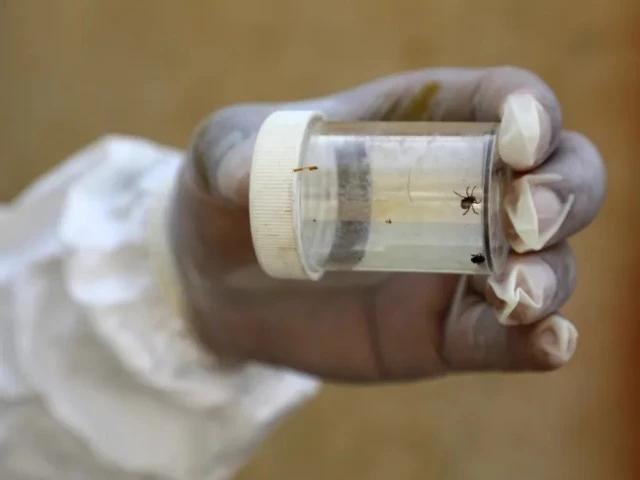Congo virus claims three lives in Pakistan
Two fatalities reported in Khyber-Pakhtunkhwa and one in Karachi on Thursday

Pakistan has recorded three deaths from Congo virus on Thursday, with two fatalities reported in Khyber-Pakhtunkhwa (K-P) and one in Karachi, Express News reported.
The latest victim in Sindh was a 25-year-old fisherman from Ibrahim Hyderi, while the K-P toll includes patients from Karak and North Waziristan.
According to health officials, Muhammad Zubair, a resident of Malir district, first exhibited symptoms including high fever, muscle pain, abdominal discomfort, coughing, diarrhea, bleeding, and loss of consciousness on June 16.
He was admitted to Jinnah Hospital, where doctors suspected Congo virus infection. Due to the lack of specialized treatment facilities, he was transferred to the Sindh Infectious Diseases Hospital, where he died at 7 am on June 19.
Read More: Sindh reports first Congo virus death of 2025
The Sindh Health Department has promptly dispatched an active search and response team to the affected area. Contact tracing efforts have been carried out, with all individuals who had close contact with the deceased identified and monitored.
So far, no other cases have been reported. Local residents and the victim’s family have been advised to follow strict precautionary measures to prevent further spread.
This death follows the province’s first reported fatality from the virus earlier this week, when a 42-year-old man from Malir district was admitted to Indus Hospital in Korangi on June 16 and died the next day.
In K-P, two Congo virus patients from Karak and North Waziristan districts died at Hayatabad Medical Complex. These fatalities have raised the provincial death toll to three.
Also Read: Two Congo virus patient hospitalised at Peshawar's Hayatabad Medical Complex
Meanwhile, three additional patients infected with the virus are currently receiving treatment in isolation wards at the hospital. Health Advisor Ehtesham Ali said contact tracing and sanitization operations have been initiated at the homes of the deceased and the infected.
He added that an advisory regarding Congo virus had been circulated to all hospitals across Pakistan prior to Eidul Azha, as the increased movement and slaughter of sacrificial animals heighten the risk of transmission.
Congo virus is a severe viral disease transmitted primarily through tick bites or contact with the blood and tissues of infected animals, particularly during and immediately after slaughter.
The World Health Organization (WHO) reports a case fatality rate of 10-40 per cent, with no vaccine currently available. In April, the National Institute of Health (NIH) issued an advisory urging preventive measures ahead of Eidul Azha, when the movement of sacrificial animals increases.





















COMMENTS
Comments are moderated and generally will be posted if they are on-topic and not abusive.
For more information, please see our Comments FAQ